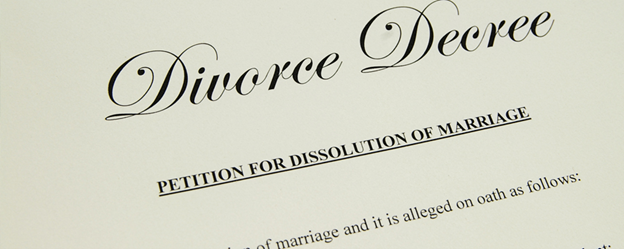
What to do BEFORE Filing for Divorce
May 13, 2024Getting divorced in New Jersey can sometimes be an involved process, particularly when the couple cannot come to an agreement and we are forced to go to trial.
There are quite a few steps we recommend before filing for divorce, which you can read about here: What to do before filing for divorce.
While every case is different, most of the time they follow the same general steps:
- File a Formal Divorce Complaint
To start the divorce process, someone has to file a complaint with the court. Whoever files is considered the “plaintiff” and the other partner will be referred to as the “defendant.” It has no impact on the court’s decision who files first, so Defendant’s are not in a weaker position if the other spouse filed first.
You will need to give the court your names and addresses, when and where you were married, and what the grounds are for your divorce, which can be based on fault or no-fault. Click here to learn the difference between a fault v. no-fault divorce. - Answer/Appearance and Counterclaim
The spouse who did not file for divorce but receives the complaint for divorce is the defendant. The defendant has to respond to the complaint if they want an opportunity to also state their side of the story and be heard in court.
They can respond by filing a general appearance, meaning they are going to show up to court, or by answering the complaint, where they respond to the allegations or grounds you listed for wanting a divorce.
In addition to answering the complaint, the defendant can make a counterclaim, where they can provide allegations and grounds for wanting a divorce as well. This is most common in a contested divorce. - File a Case Information Statement
Each party, the plaintiff and defendant, both have to file a Case Information Statement (CIS). That statement will ask you to list out all of your financial information (monthly expenses, assets, accounts, debts/liabilities, pensions, insurance, etc…) relevant to the legal issues in your divorces, including alimony and property distribution.
Equitable distribution and alimony are important issues in a divorce. Consult with our attorneys before you complete this step! - Case Management Conference
Ideally we would like to help you and your spouse reach an agreement before the case gets to this point. But, if parties cannot agree, and the complaint and response have been filed, then the parties will be required to have a Case Management Conference.
You and your spouse will be asked to produce various financial and personal documents, have real estate and personal property appraised, have parents and children possibly evaluated if necessary, and adhere to the timeframe set forth by a Judge. - Early Settlement Panel
Once you’ve provided all the information, the panel of 2-3 experienced divorce lawyers will review the legal issues involved in the case and make recommendations on solving the financial issues. This happens in a courthouse with both parties and their attorneys present, or on Zoom. If the parties can agree to the recommendations, the divorce is granted. The lawyers at this step will not make any decisions regarding custody or child related matters. They will only address financial and economic concerns.
If the parties still cannot agree at this point, then they have to proceed to the next step which is economic mediation. - Economic Mediation
This is another way that the court tries to help couples come to an agreement before having to go to trial. Mediation is a low stress environment where a trained, neutral professional meets with you both in an informal setting to try to guide you both towards negotiating and reaching an agreement to the important issues in your divorce.
Again, if the parties still cannot agree, they move on to the next step. - Settlement Conference
This is essentially an intensive settlement panel in the courthouse with both parties and their attorneys if they have hired one. A judge presides over the conference and it can last from a few hours to an entire day. It is similar to the early settlement conference, but now the judge is involved.
The judge will share the initial implications of the case and clarify each party’s strengths and weaknesses. Ideally, most couples would resolve their issues by this stage or earlier. But this is not a perfect world and sometimes, even at this stage, parties still disagree. - Trial
If parties have finished all the previous steps and still are unable to come to an agreement, they will have to go to trial.
At this stage, the court is going to make the final decision on all the issues the couple could not agree on. This can be fortunate or unfortunate depending on your specific circumstances. Once the judge makes their decision, your Final Judgment of Divorce is issued.
As you can see, the divorce process in New Jersey can be long, involved, and sometimes complicated. And there are factors that can speed up or slow down the process, such as how long parties were separated before filing for divorce, was there a prenuptial agreement, does either party need financial support while the divorce is pending, are there children involved, how much property do the parties own, and more.
Having an experienced and effective attorney to guide you through everything and to have your back during the process is highly recommended.
Call our experienced attorneys at 865-795-0020 to schedule a free consultation.
*This web site is designed for general information only. The information presented on this site should not be construed to be formal legal advice nor the formation of a lawyer/client relationship.


